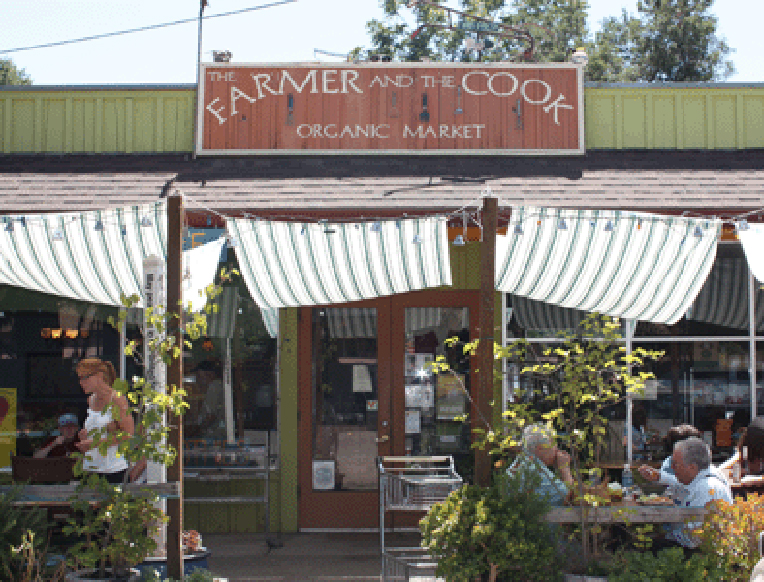In-Person: Beavers in the Landscape with Dr. Emily Fairfax
 Environment/Climate
Environment/Climate
**Events may have been canceled or postponed. Please contact the venue to confirm the event.
Date & Time
Thu, Nov 11 5:00 PM - 8:00 PM
Address (map)
339 W. El Roblar Dr., Meiners Oaks CA 93023
Santa Barbara Permaculture Network Presents
Beavers in the Landscape
Climate, Fire, Drought, Who do you call? Beavers!
Ecosystem Restoration Heroes
An Evening with Dr. Emily Fairfax
Thursday, November 11, 2021
5-8 pm, FREE
Event Outdoors on the Patio: Farmer & the Cook Restaurant
(Wood-fired Pizza available)
339 W. El Roblar Dr., Meiners Oaks CA (near Ojai)
Beaver dams are gaining popularity as a low-tech, low-cost strategy to build climate resiliency at the landscape scale. Emily Fairfax
Join Santa Barbara Permaculture Network for an evening with Dr. Emily Fairfax, PhD., as she shares her research, focused on beaver, a keystone species that until very recently was a vastly underrated ecosystem restoration hero. Passionate about science from a young age, Emily Fairfax was happy when nature and science came together with her interest in beavers. As a geoscientist who studies ecohydrology of wetlands and riparian areas, it was a perfect academic and vocational match.
Beavers are native to North America (Castor canadensis), in populations topping 600 million before trappers in the 1800s decimated their numbers almost to extinction. They were responsible for a landscape most early settlers and farmers took for granted— deep soils built up over centuries— in wetlands they created. These wetlands function then and now as natural sponges that trap and slowly release surface water and are excellent carbon sinks.
With extended droughts and catastrophic fires plaguing California and the West in recent years, Dr. Fairfax began focusing her research on the impact of beavers on wildfires. Squishy, wet landscapes simply don’t burn. And where the beaver is, with multiple dam complexes and ponds, squishy land abounds. These conclusions prompted Fairfax to coin the phrase “Smokey the Beaver”.
Of course, beavers and human settlements are often at odds. But in communities like Martinez, CA, where a popular Beaver Festival takes place every year, they and others have demonstrated these conflicts can be managed with clever strategies, good for the beaver and the community. And with these kinds of beaver management strategies come interesting new jobs, especially good for our next generation, many who yearn for positive livelihoods. As part of the evening event, we will share the work of, Cooper Lienheart a recent engineering grad of Cal Poly San Luis Obispo, who currently works as a SLO Beaver Brigade Restoration Specialist, and has decided to make beaver and wetland restoration his life work.
Emily Fairfax is an Assistant Professor of Environmental Science and Resource Management at California State University Channel Islands.
My current research focuses on the ecohydrology of riparian areas, particularly those that have been impacted by beaver damming. I use a combination of remote sensing, modeling, and field to work understand how beaver damming changes these landscapes and on what timescales those changes operate. I also have an interest in geoscience education research, particularly curriculum development.
The event takes place on Thursday, November 11, 5-8 pm, at the Farmer & the Cook Restaurant, on their outdoor patio, 339 W. El Roblar Dr, Meiners Oaks (near Ojai). Woodfired Pizza is available for purchase. For more info contact margie@sbpermaculture.org, 805-962-2571, www.sbpermaculture.org.
Hosted by Santa Barbara Permaculture Network
Co-sponsors: The Farmer & the Cook; San Luis Obispo, Santa Barbara, & Ojai Beaver Brigades
Read More, additional resources:
Beavers and Wildfire: a stop-motion story by Emily Fairfax
Visiting a Beaver Lodge with Dr. Emily Fairfax, Upper Salinas River, Atascadero, CA
San Luis Obispo Beaver Brigade
Beavers held the world – Conversation with Ben Goldfarb
Grey Owl’s Speaking for the beavers
Large Beaver Pond Grand Tetons National Park
Interactive video/ Creation of a Beaver Ecosystem
